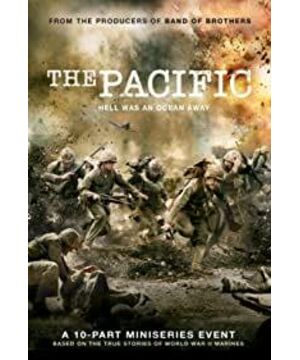The pace of the first few episodes was a bit slow, but it was great. If you have the patience to read it slowly, you can understand this series of stories. In the first episode, the US military teased a Japanese army for entertainment, which was a shame for the Japanese army. He cried to the sky and shouted: Why didn't you kill me? It is grievance, helplessness, and questioning. Just as the U.S. military was laughing with joy, one of the American soldiers, with a deep gaze, seemed to show a little anger, perhaps out of sympathy, or perhaps lamenting the cruelty of the war, he shot and killed the Japanese soldier. This is both his honor and his personal humanitarianism, irrespective of international norms for the treatment of prisoners. The U.S. Army dug out the Japanese army's bag and found a traditional Japanese doll, which made people cry. Combining the next few episodes, the more you watch, the more you can highlight the theme of peace-loving, which makes people sigh: who doesn't have their own home? Who doesn't love their country? Maybe we don't want to get involved in this battle, but everyone can't stay out of it and we have to give it our all.
Of course, some people will say that this drama is not good enough, it is not as good as "Band of Brothers", and the war scene is not very grand. I do not object to this view. After all, the angle setting of this drama is not a macro perspective, it is to show the Pacific War from the perspective of three marines, witnessing the cruelty of the war, it may be subjective from the perspective of the protagonist. There are different.
I don’t think it’s necessary to overemphasize nationality and nationality in a war movie. We must grasp the main theme from a macro level. Regardless of whether the plot is tight or slow, we must link our personal destiny with family and national feelings and hatred. The intentional nature of the film makes it seem abrupt when viewed, and it is inevitable to feel the suspicion of imposing emotion and deliberately singing praises.
As mentioned above, in international wars, when filming such film and television works, sometimes changing perspectives, it is not necessary to raise the main theme. By telling the story, family and national hatred and personal fate are often linked together, and personal interests form a collective Interests, collective interests will also achieve individual interests. Why do you have to emphasize the sacrifice of individuals, the situation is terrible, to serve the big group, to highlight the small self, the selflessness of the big self, the abandonment of small love, and the boundless love? Obviously the two can go hand in hand.
View more about The Pacific reviews











